The great acceptance of renewable energy is a positive news, however, at the same time it poses gigantic roadblocks in the form of intermittence and unpredictability — the sun doesn’t shine always and the wind never blows every second. This causes a lot of problems like curtailment and “duck-curve”, which diminishes the profitability of renewable plants as well as restricts adoption of renewables on the grid, and could even lead to complete failure of the power grid since power grids are extremely vulnerable to fluctuations.
The solution to address this problem is battery. However, for instance if we have to power the entire California power grid with renewables, we need lot of batteries. And if those batteries are made of lithium ion, the total cost of energy storage would be much higher than the cost of the entire United States power grid. This shows the economical challenges of adopting lithium ion batteries to stabilize power grids with renewable plants.
“Electrochemical batteries are incapable of viably storing the energy that is required to enable true adoption of renewables,as they can store energy only for short durations.
Lithium batteries serve different purposes in power grids such as frequency regulation, as they provide power within short periods. However, they are absolutely incapable of viably storing the energy that is required to enable true adoption of renewables as they can store energy only for short durations. In order to address these challenges, India’s home grown deMITasse Energies building alternative and new class of power plants using its in-house developed closed-loop non-combusting thermodynamic cycle working on proprietary working fluid and catalytic processes to generate power extremely efficiently, reliably and inexpensively, with zero emissions.
deMITasse’s Energies Thermo-chemical cycle:
deMITasse’s thermo-chemical cycle is partly similar in concept to the Rankine cycle that is at the core of all thermal and nuclear power plants. In Rankine cycle, high purity demineralized water is converted into high-pressure high-temperature steam to generate power, but over 70-60% of the input energy is wasted into the atmosphere through cooling towers, condensers and sometimes compressors. As the waste heat is of low grade, i.e. below 100-150degC — this vast amount of wasted energy cannot be reutilized.
In a similar fashion, our proprietary working fluid is heated using industrial waste or process heat (including low grade sources up to 60-70degC), off-peak electricity from the power grid, industrial or engine exhaust etc. But unlike water, our working fluid has a boiling point below -60degC. It has one of the highest known expansion ratios, has a very high coefficient of thermal expansion that is a strong function of temperature — all these makes our working fluid extremely effective for power generation. When heated under pressure, it becomes super-critical and generates power through an expansion turbine that is similar to a steam turbine but about 4 times smaller and significantly more efficient (as fluid density is much higher in our cycle when compared to even super-critical steam).
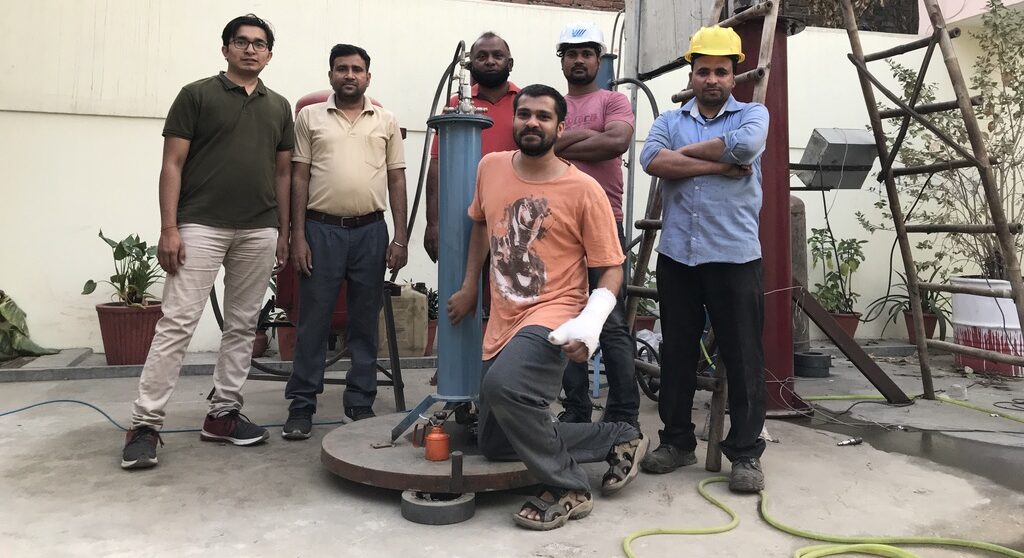
“The highest energy density of electrochemical batteries such as lithium ion batteries are between 250-670Wh/L. And Lead acid batteries are around 60-75 Wh/L. Energy density is the amount of energy stored in a given system or region of space per unit volume. Currently our technology’s energy density ranges between 400kWh/m3 to 1200kWh/m3, subject to various conditions, applications, and other parameters. We are exploring new chemistries, new reactor designs, advanced materials,and advanced nanotechnology techniques like nano-coatings, nano-fluidics, nano-particles etc., to enhance our energy storage densities to over 1800kWh/m3”.
“The energy density of deMITasse’s technology currently ranges between 400kWh/m3 to 1200kWh/m3 while electrochemical batteries such as lithium ion batteries are between 250-670Wh/L, and Lead acid batteries are around 60-75 Wh/L”.
“Our technology is extremely scalable, and can viably compete in the 200kW to 500MW capacity ranges with any existing systems or technologies and also can serve capacities as low as 5kW, for niche markets and applications. Today the cost of typical lithium ion batteries are around $140 per kWh, while we are targeting a price of around $80-100 per kWh (or lower) within a couple years since our technology does not rely on exotic or rare materials and components”.
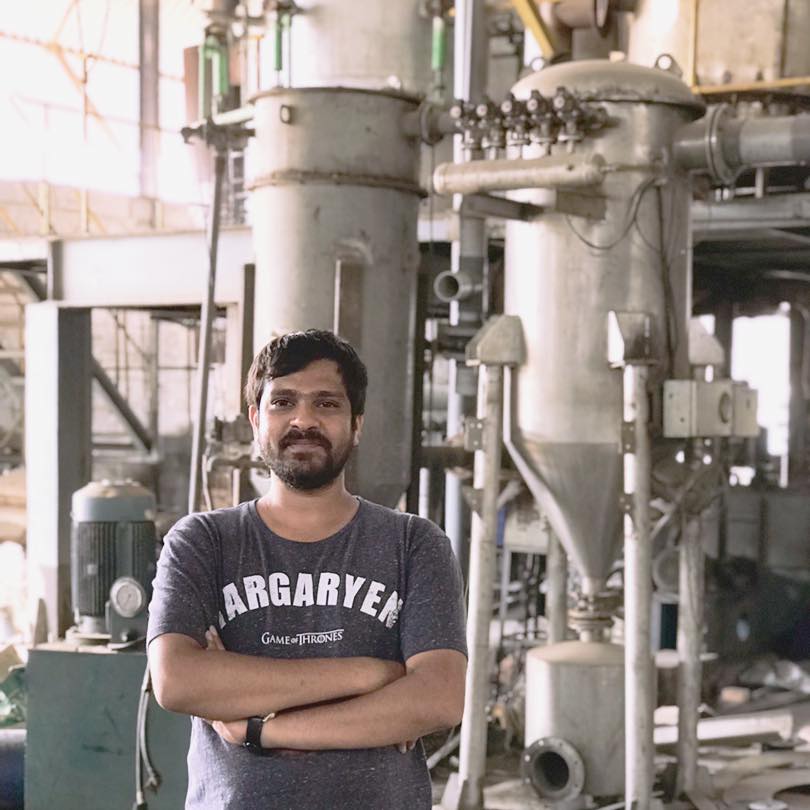
“The cost of typical lithium ion batteries are around $140 per kWh, while we are targeting a price around $80-100 per kWh in the coming two years since our technology does not rely on exotic or rare materials and components”
“We have made deliberate choices and decisions to make sure all our components and chemicals are readily available across the globe (and especially in India) at a viable price point for energy storage and it makes energy storage extremely viable (up to 4-10 times cheaper than various lithium ion technologies). Our batteries can store huge amounts of energy (up to grid scales) for very long durations (up to 18+ months) with negligible losses. ” told Vijay, founder and CEO of deMITasse Energies.
The dream beyond Internet of Things
Vijay and Megha are the co-founders of deMITasse Energies. Vijay finds motivation in solving the “greatest challenge of our generation.” In Fact, it helped him gain expertise in multiple disciplines such as chemical and aerospace engineering, economics, marketing and international trade.
Megha has always been a sustainability ninja, whether at her previous startup where she upcycled discarded tyres into high value footwear or saving water for thirsty animals in summers as a child growing up in Rajasthan. Her motivation of improving the lives of millions of people pulled her into the sustainable technology domain.

“There are several reasons that motivated us to solve this grave problem. The most important one is that if no one solves these challenges, humanity will soon destroy itself”.
“And I prefer my future kids and grandkids stay alive”, jokes Vijay.
“We believe building technologies to solve the energy storage and climate crisis problem are significantly more important than predicting what ads a teenager clicks on social media platforms, and so we decided to pull our sleeves up and get to solving this grave problem.
Lifespan of the technology
“Due to our system being a closed-loop non-combusting system, the degradations and life reduction due to external contaminations and foreign object damage is eliminated.Typically, our plants come with a minimum life span of 30yrs, whereas smaller capacity engines could have a life of about 20-30yrs with very low maintenance and large capacity plants would come with minimum life span of 40-60yrs, with low periodic maintenance.”
“Most lithium ion batteries start showing degrading performance below 15degC and with lifespan of around 2-5yrs or 500-1500 cycles under strict operating and storage conditions. However, our catalysts are built for thousands of cycles, and have already been tested for nearly 30,000 cycles with no significant chemical degradation noticed in testing”
“Most lithium ion batteries start showing degrading performance below 15degC and havelifespan of around 2-5yrs or 500-1500 cycles under strict operating and storage conditions. However, our catalysts are built for thousands of cycles, and have been tested for nearly 30,000 cycles with no significant chemical degradation in testing. Our plants can operate flawlessly without additional modifications between-30degC and 80-90degC. Our chemicals are relatively less complicated and highly reusable and recyclable”.
Ecological impact and Recycling:
The disposal of solar photovoltaic, lithium ion and wind turbine blades are getting difficult since the recycling supply chain is not fully formed and are very expensive. The founder of deMITasse Energies, Vijay responded when we asked about the ecological impact of their technology and its recycling possibilities.
“The core design philosophy of our technology is sustainability, economic viability and safety. While operationally, our plants have zero emissions, they also pose negligible lifecycle impact on environment, ecology, or human lives either during material sourcing or at their end-of-life”.
“None of our chemicals or catalysts are harmful for the environment or human lives, even in case of an accidental release or leakages
“We are avoiding dependence on exotic and rare minerals or materials like lithium, nickel or cobalt that tend to increase cost and have adverse impact on the environment and people. Instead we primarily depend on widely available resources like steels, aluminium, copper alloys etc that are highly recyclable. Our plants have very long lives, post which most materials can be recycled or reused after mild reprocessing. The ones that cannot be recycled, can be disposed off safely without causing environmental damage as they degrade naturally in relatively shorter time periods. None of our chemicals or catalysts are harmful for the environment or human lives, even in case of an accidental release or leakages”.

The great challenge being a core-engineering startup in India is that there is a short supply of quality engineering talent beyond IT and computer sciences. Our institutions like IITs and IISc produce a large number of engineering graduates each year and most of them are inclined towards a career in information technology. And the vast majority of the tiny fraction of engineering graduates who are not into IT, lack quality technical experience in core engineering fields like reactor design, aero-thermodynamics, high end modeling and simulations, reaction engineering, molecule development,advanced material science, etc.
However, we have witnessed slow but steady change in this ecosystem over the years. It gives us immense hope that soon India can enjoy similar warmth in the core tech industry that used to be found mostly in developed nations like the US and Europe”.
Policy level recommendations:
“Energy is the key to future national security, peace and economic development, hence due focus should be given to this sector beyond simple measures and making much hype but less impact. The few important ones that we believe are firstly, the industry should move beyond lithium ion as the solution lies beyond electrochemical technologies for energy storage. Secondly, the startups in the core and tough tech sector should be promoted with patience, capital and grants especially through government as it fosters scientific prowess, economic growth and technological superiority over our adversaries. And lastly, the market for carbon credits and energy markets needs to be significantly developed and be made lucrative for all stakeholders” he concluded.
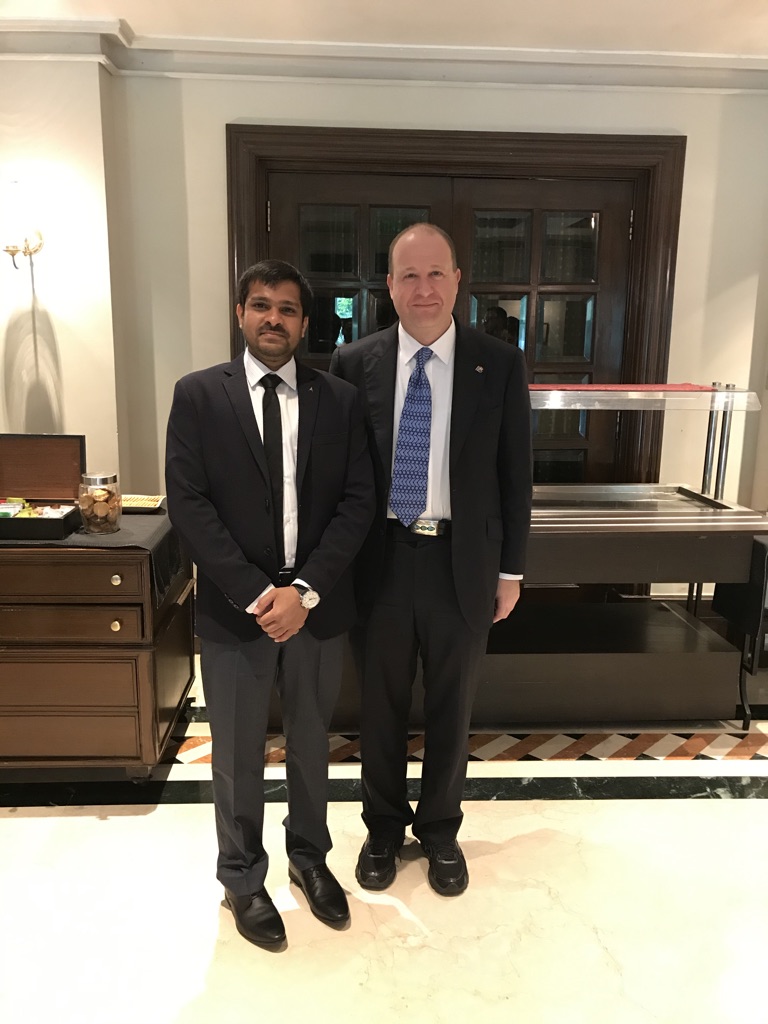
Core and heavy engineering companies (such as deMITasse Energies) are inherently capital intensive in their initial phase of growth, and thus being a startup in this sector requires patient capital with long term vision. Unfortunately, such investors are rare in India. Beyond that, all other challenges like outdated governmental policies, reluctance of large corporations to incorporate new technologies, lack of sufficient grants for research, development and deployment of such cutting edge technology etc are delaying the process.
In the long-term future, deMITasse Energies is planning to be an integral and critical player in the global energy storage market. They are envisioning deploying multi-GWh grid-scale energy storage plants in-tandem with power grids, renewable power plants and large industrial complexes to make a clean, green and stable power grid of the future.
What is your solution for a sustainable energy market?
Share your green story!
Photo credits: deMITasse Energies


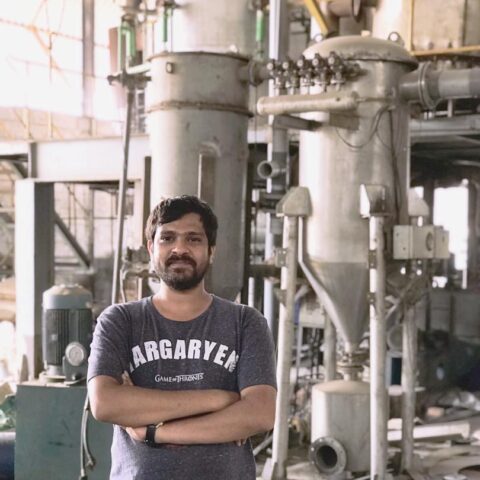
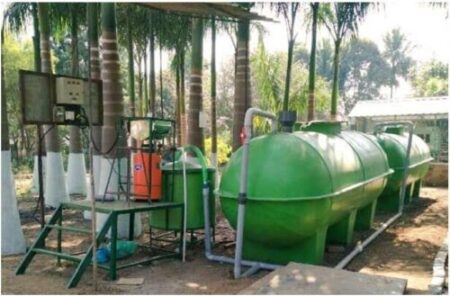
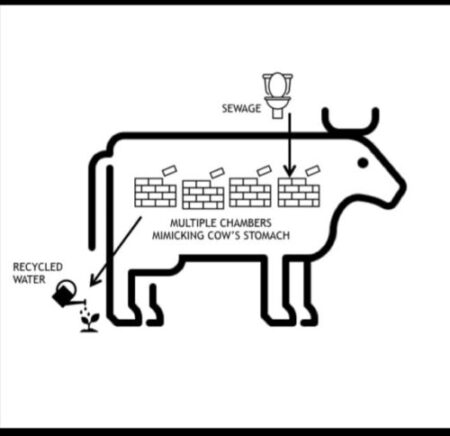
I’m amazed, I have to admit. Rarely do I come across a blog that’s equally educative and engaging, and let me tell you, you have hit the nail on the head. The issue is an issue that too few folks are speaking intelligently about. I am very happy I stumbled across this in my hunt for something regarding this.